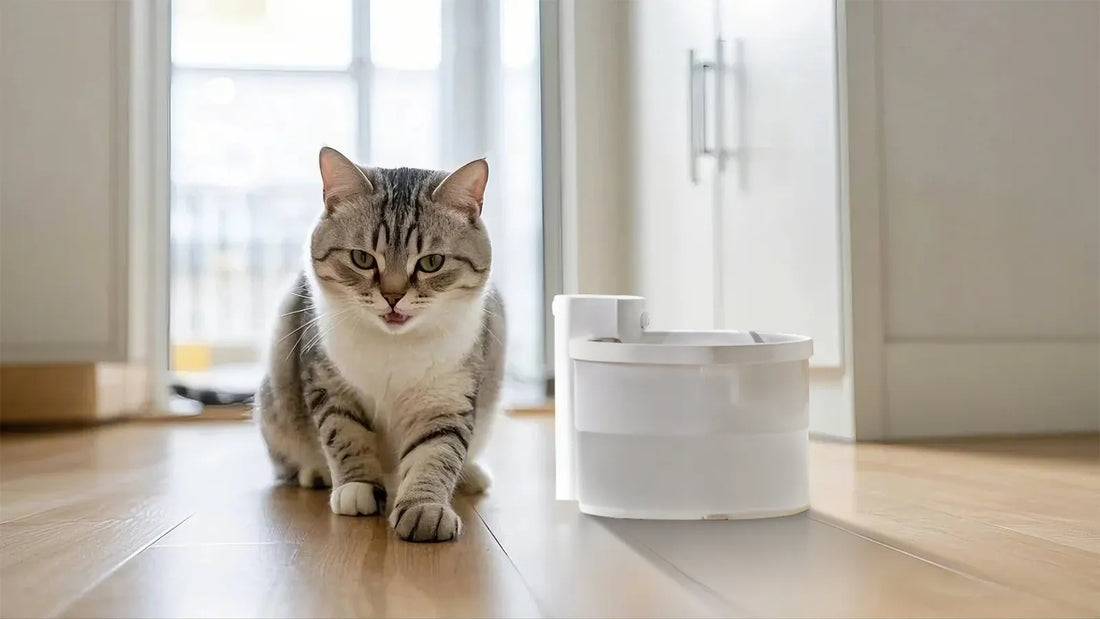If you've ever wondered why your cat digs in the litter box but doesn't use it, you're not alone. This behavior can be both confusing and frustrating for pet owners. Understanding the reasons behind it can help you address the issue and ensure your feline friend is happy and healthy.
Understanding Feline Behavior
Cats are creatures of habit, and their behavior often has a specific purpose. Digging in the litter box without using it can be attributed to several factors, ranging from instinctual behaviors to underlying health issues.
Instinctual Digging
One of the primary reasons cats dig in the litter box is instinct. In the wild, cats dig to bury their waste to avoid attracting predators. Even though domestic cats don't face the same threats, this instinct remains strong. Your cat might be digging to create a suitable spot for elimination, even if they don't end up using it.
Marking Territory
Cats are territorial animals, and they use scent marking to establish their territory. By digging in the litter box, your cat might be leaving their scent behind, even if they don't actually eliminate. This behavior is more common in multi-cat households where competition for territory is higher.
Exploratory Behavior
Sometimes, cats dig in the litter box out of curiosity or boredom. They might be exploring the texture of the litter or simply engaging in a playful activity. This is especially true for kittens or younger cats who are still learning about their environment.
Health-Related Issues
While instinctual and exploratory behaviors are common, it's essential to consider health-related issues that might cause your cat to dig without eliminating.
Urinary Tract Infections
Urinary tract infections (UTIs) can cause discomfort and pain during urination. If your cat associates the litter box with pain, they might dig but avoid using it. Other symptoms of UTIs include frequent attempts to urinate, blood in the urine, and excessive licking of the genital area.
Constipation or Blockages
Constipation or blockages in the digestive tract can also lead to this behavior. If your cat is experiencing difficulty passing stool, they might dig in the litter box but not eliminate. Look for signs such as straining, hard stools, or a lack of bowel movements.
Stress and Anxiety
Stress and anxiety can significantly impact your cat's behavior. Changes in the household, such as moving to a new home, introducing a new pet, or even rearranging furniture, can cause stress. Your cat might dig in the litter box as a coping mechanism but not use it due to anxiety.
Environmental Factors
The environment plays a crucial role in your cat's litter box behavior. Ensuring that the litter box meets your cat's needs can help address the issue.
Litter Box Size and Type
The size and type of the litter box can influence your cat's behavior. If the box is too small or too large, your cat might feel uncomfortable using it. Covered litter boxes can also be intimidating for some cats, leading to digging without elimination.
Litter Type and Cleanliness
Cats can be particular about the type of litter used. Some prefer clumping litter, while others might like non-clumping or natural alternatives. Additionally, a dirty litter box can deter your cat from using it. Regular cleaning is essential to maintain a hygienic environment.
Location of the Litter Box
The location of the litter box is another critical factor. If the box is placed in a noisy or high-traffic area, your cat might feel stressed and avoid using it. Ensure the litter box is in a quiet, accessible location where your cat feels safe.
Addressing the Issue
If your cat is digging in the litter box but not using it, there are several steps you can take to address the behavior.
Consulting a Veterinarian
If you suspect a health-related issue, it's essential to consult a veterinarian. They can perform a thorough examination and recommend appropriate treatment. Addressing any underlying health problems can help resolve the behavior.
Providing a Suitable Environment
Ensure that the litter box meets your cat's needs. Experiment with different types and sizes of litter boxes to find the one your cat prefers. Keep the litter box clean and place it in a quiet, accessible location.
Reducing Stress
If stress is the underlying cause, take steps to reduce it. Provide a safe and comfortable environment for your cat, and consider using calming products or pheromone diffusers. Gradual introductions to new pets or changes in the household can also help reduce anxiety.
Encouraging Play and Exploration
If your cat is digging out of boredom, encourage play and exploration. Provide toys, scratching posts, and interactive activities to keep your cat engaged. This can help redirect their energy and reduce unwanted behaviors.
Understanding why your cat digs in the litter box but doesn't use it is the first step toward addressing the issue. By considering instinctual behaviors, health-related problems, and environmental factors, you can create a comfortable and stress-free environment for your feline friend. With patience and care, you can help your cat develop healthy litter box habits and ensure their well-being.

![[🎃Halloween Sale]UAHPET Stainless Steel Self-Cleaning Cat Litter Box](http://www.uahpet.com/cdn/shop/files/1-cat-litter-box.jpg?v=1761890851&width=1600)












